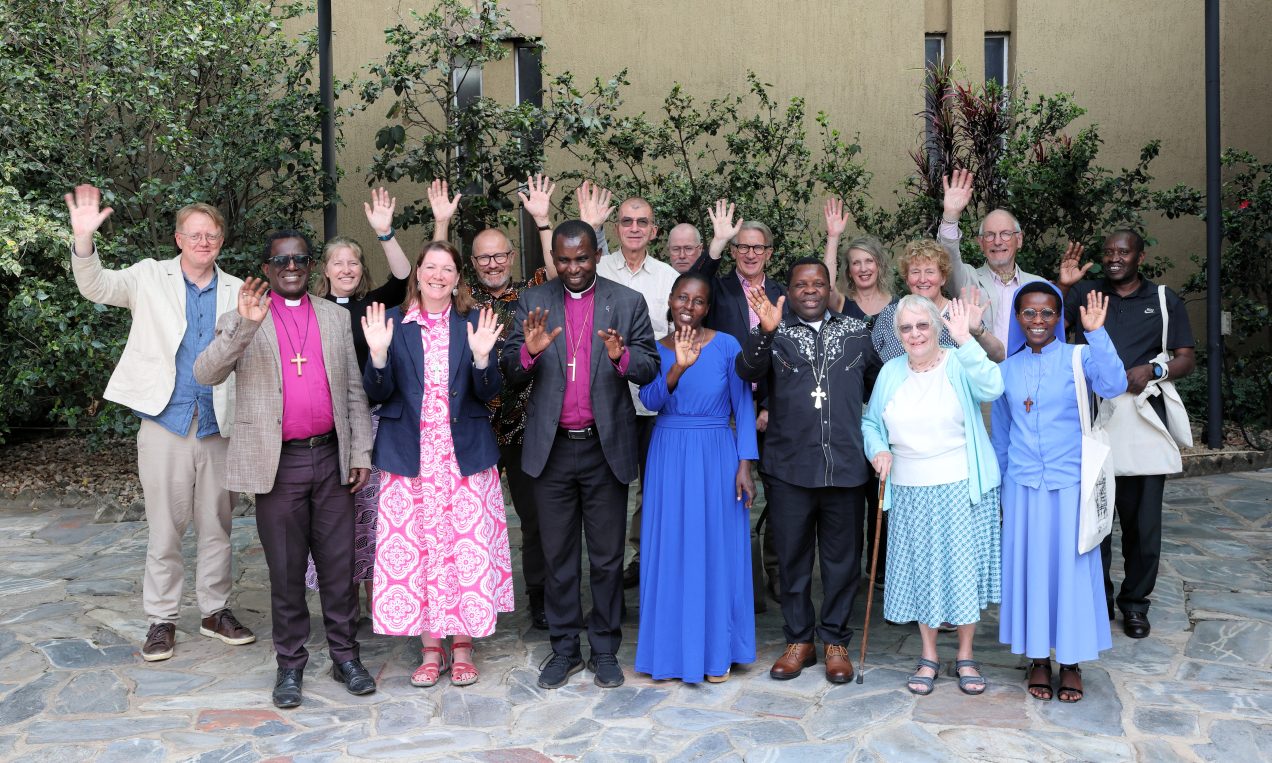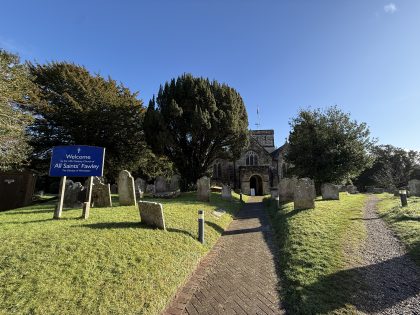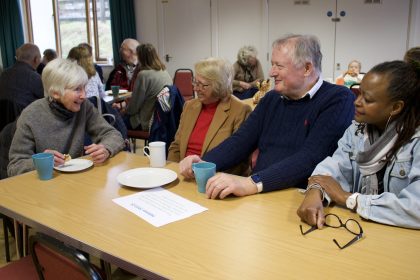Bishop Rhiannon and representatives from churches across the Diocese of Winchester have travelled to Rwanda to mark 100 years of the Anglican Church. Several parishes within our diocese have long-standing links with the East African country and so it was also an opportunity to visit their mission partners, to see the work being carried out in God’s name and to share times of prayer and worship together.
The church in Rwanda faces major challenges. In 2018, the Government introduced a building code that required churches to upgrade their facilities and vehicular access. This resulted in almost 80% of churches in Rwanda closing until they could complete their works, including reinforcing walls, re-roofing, improving electrical systems, toilets, water tanks, hand-washing facilities, and lightning rods.
The Lyndhurst Deanery has strong historic links with Rwanda. A party from parishes across the deanery travelled out to visit their respective link dioceses, before heading to Gahini Cathedral for the centenary celebration. They toured schools, churches and community projects. The church in Rwanda is heavily involved in education and healthcare.
Revd Simon Newham, Vicar of Brockenhurst Parishes visited the Kigeme Diocese. He said, “On our first Sunday, I had the privilege of preaching to a congregation of around 800 people at a service that marked the end of a Youth Festival attended by some 950 young people. We saw new churches being built, according to the new Government requirements, using some of the funds we have raised.”
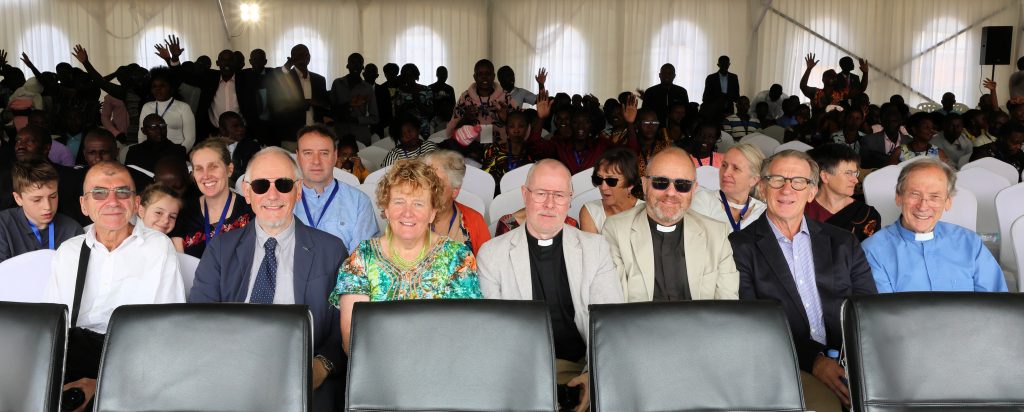
He continued, “We visited the new market place, built with the help of funds raised in Brockenhurst, for the Kigeme Refugee Camp, to replace the market place lost to fire a couple of years ago. We spoke to refugees about how the church has, and continues to, welcome them and help meet their needs. We were welcomed so generously with dancing and singing and piles of food in communities that could afford little. We heard of a church that is deeply ingrained in serving the real needs and development of the wider community – working on issues such as poverty, teenage mothers, health, education, child abuse, environmental deterioration, malnutrition, drug addiction and prostitution in creative and strategic ways with the support of the Government.”
The group also visited the Kigali Genocide memorial. In just 100 days in 1994, around 800,000 people were killed in Rwanda by ethnic Hutu extremists who targeted members of the minority Tutsi community, as well as their political opponents. The memorial included three exhibitions, an education centre and gardens. It’s close to the mass graves of 250,000 residents.
Revd Jane Mitchell from St Luke’s Church in Sway visited the parish of Kibirizi, also in the Kigeme Diocese, about 5 hours south west of the capital Kigali. Here, as in many other places, the church is shut while it’s rebuilt to government specifications.
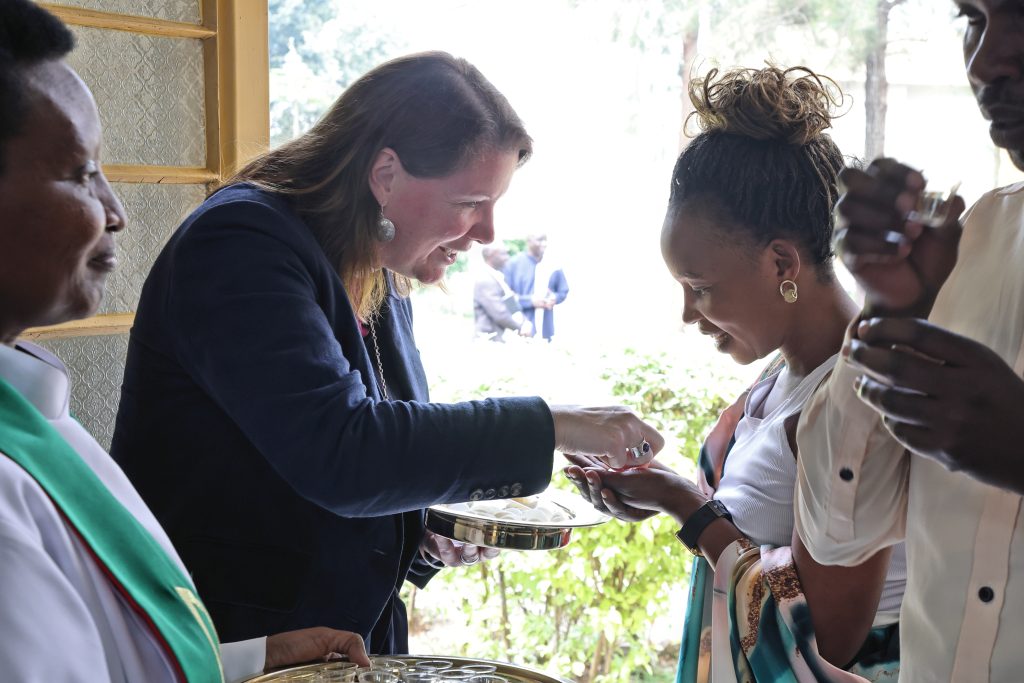
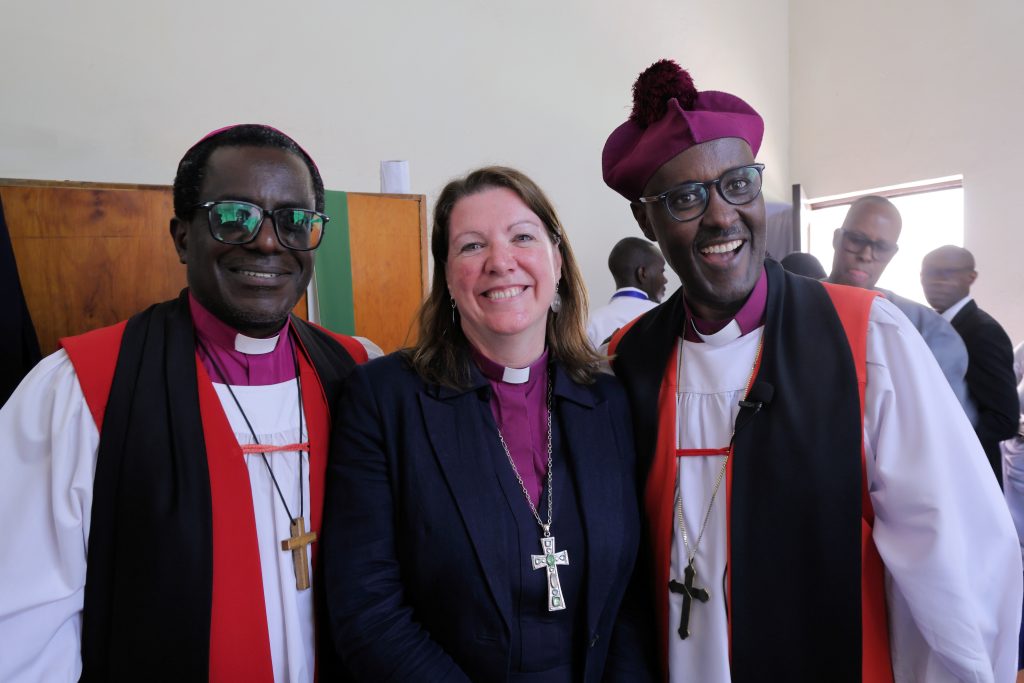
Revd Jane said, “The journey itself gave us a sense of the remoteness of the parish, but it was the welcome and generosity of the people we met who left the deepest impression. We were warmly welcomed with dancing and generous hospitality by Pastor Vianney and members of his family and many of the 1400 members of the parish. We were astonished to learn of the tenacity of the parish, who walk 8km to and from the local cathedral to celebrate a wedding on the Saturday, and again on the Sunday, to attend worship services. The worship was joyous and their faith and resilience both humbling and inspiring.”
Revd Jane also met women from the parish who operate a loans and enterprise scheme and visited a hilltop chapel used as a nursery, which operates with few resources. They prayed together for the families and for the Lord to bring hope and peace in challenging circumstances. There are schemes in Rwanda to encourage women to grow and lead in politics and over 60% of politicians are now women.
Revd Jane added, “The question I came away with was, why has this not happened in the Anglican church in the 30 years since the genocide?’ Only 15% of pastors are female. I sat next to the head of the Methodist church at the big celebration service, and he shared that there are only 2 women ministers out of 400 and he would be interested in any mentoring or enabling programmes to close the gender gap. I am interested in finding out more and whether I can help serve the Rwandan Church in the future.”
Revd Lee Thompson from St Thomas’ Church in Lymington visited Karongi Diocese, a newly established diocese led by Bishop Jean-Pierre. As a missional diocese, their role is to plant new churches in an area with little pastoral coverage. Revd Lee was joined by Bishop Rhiannon and her husband Philip, to meet some of those involved in the work of the church.
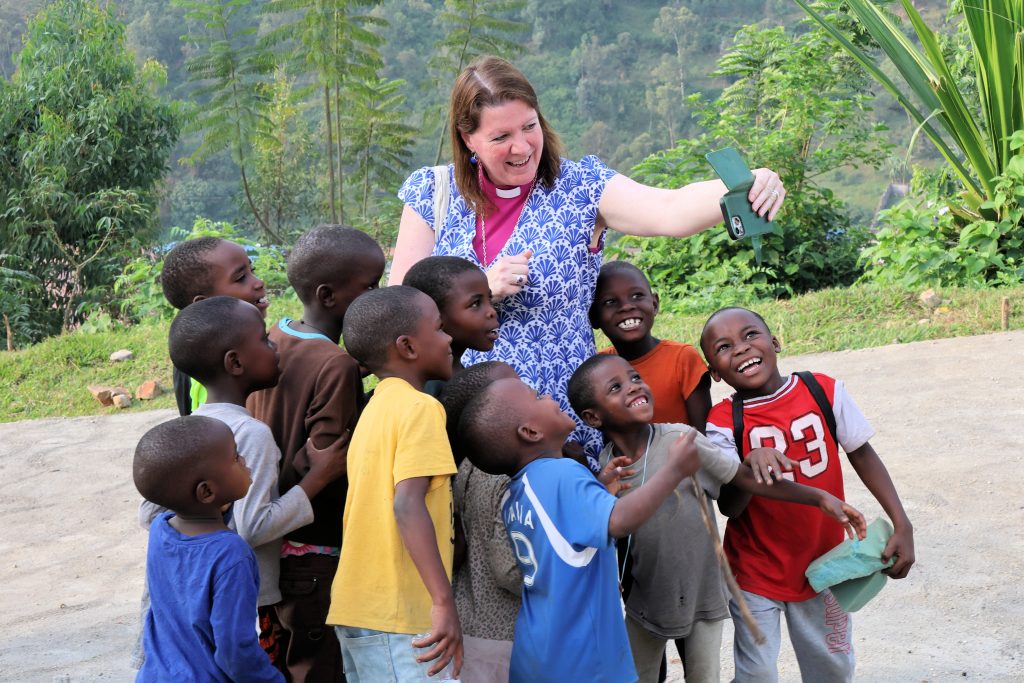
Karongi is situated in the west of Rwanda. The population is largely rural and dependent on agriculture, but the town is also home to a developing eco-tourism industry, creating employment and helping to diversify the local economy. Karongi Diocese had five churches, with land being acquired for further development, but only one was able to open for worship: the others, including St Peter’s Cathedral, subject to remedial works.
Revd Lee said, “This has proved to be a very significant challenge, to which the church has responded with great resolve and faithfulness. It has made an undeniable impact on their financial resources, due to church closures reducing income at the time of greatest need. Bishop Jean-Pierre shared stories of people’s generosity and God’s provision through this period.”
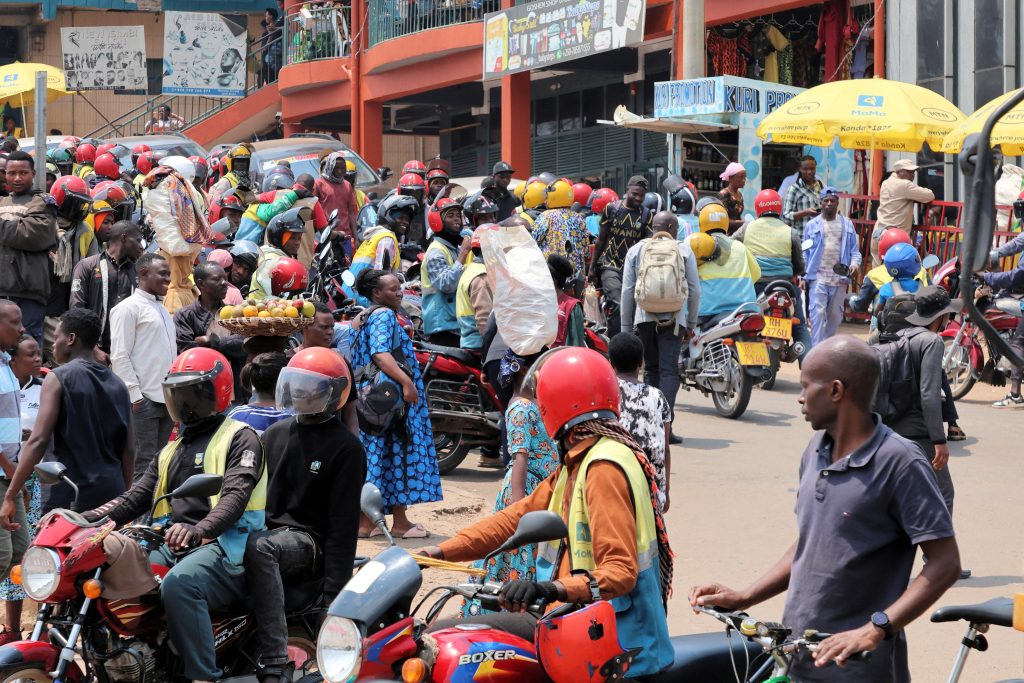
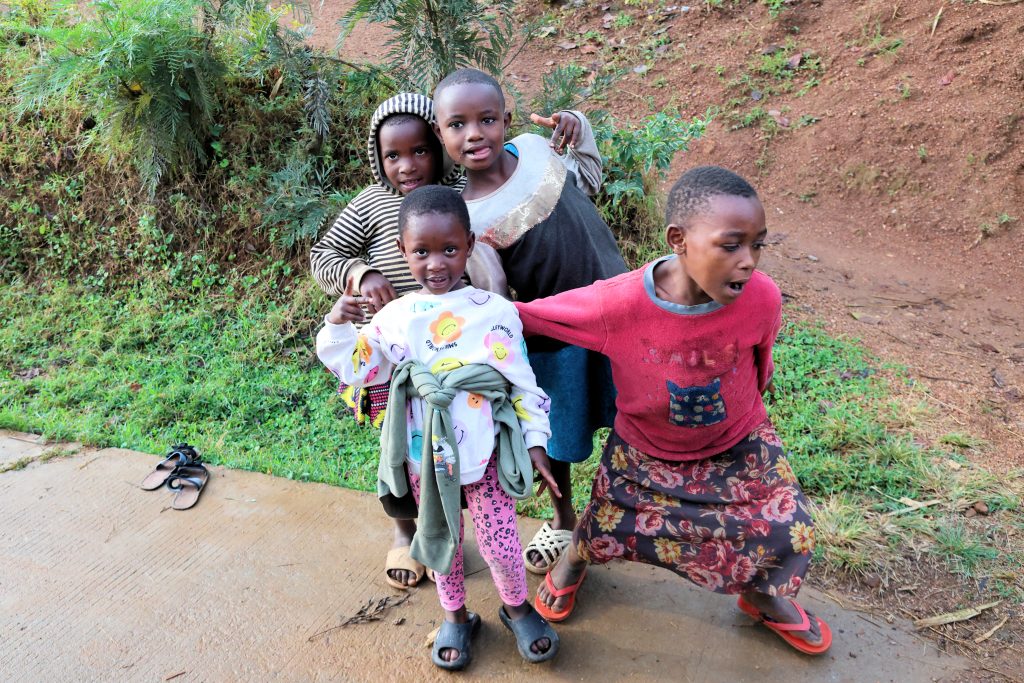
Bishop Rhiannon also visited the Karongi Diocese Mothers Union which has trained 660 mothers in basic survival and budgeting skills. They also run a piggery so they can give away pigs as much coveted gifts to single-parent families.
Bishop Rhiannon continued, “We learnt that life is particularly hard for pastors as their stipend comes from their congregations and since most congregations aren’t able to meet at the moment (until they meet government regulations) the stipend has largely dried up. Despite this, faith and hope abound, even when churches cannot open, as there is a belief that even in times of exodus and exile, God is present and is shaping his people for the future. It is reckoned that there are around 50 Anglican women clergy in Rwanda but there is no programme for training, mentoring or encouraging them, so I’d love for us, in Winchester Diocese, to see if we can do something about this!”
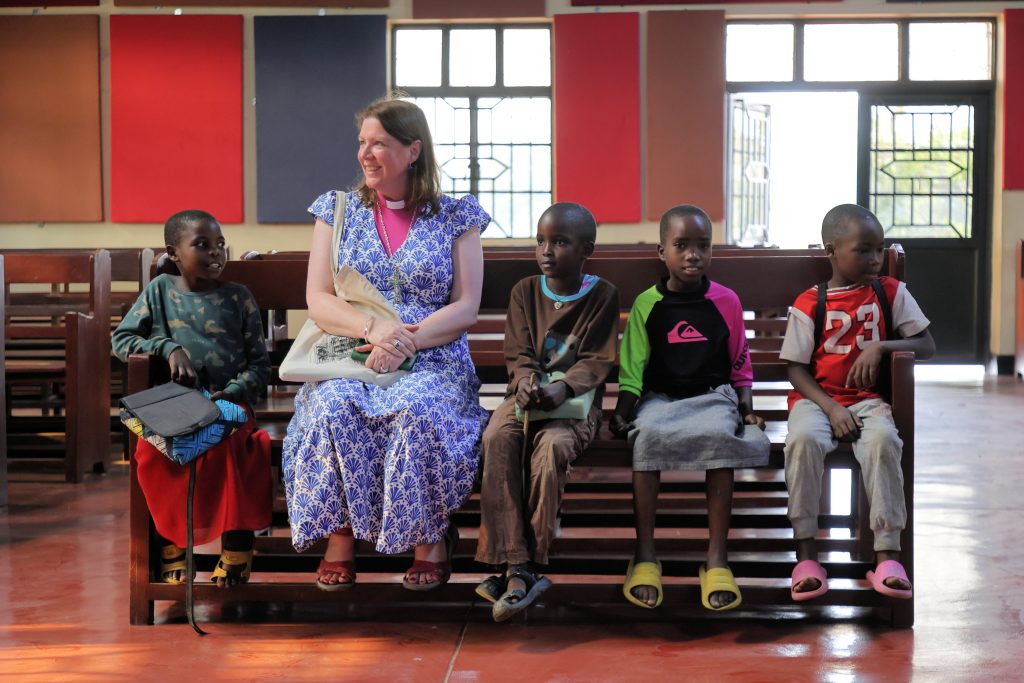
The Alresford Deanery also has links in Rwanda. Churchwarden Alex Green had previously visited the Nyaruguru Diocese in 2023, and this year returned to see the impact of the church closures and how they have responded. Over the course of the week, he visited several parishes and attended two confirmation services. At Ruheru church, situated amongst tea fields, 51 candidates were confirmed before a congregation of 450. Bishop Vincent plans to visit the Deanery next May.
Alex said, “It has been fantastic to meet with old friends and new, to see the resilience of the Nyaruguru diocese in the wake of the church closures and to observe their positive response. Mpanda Parish has undertaken substantial renovations, including structural improvements and electrical installations. Rugote Church, having recently received a lightning rod from a deanery parishioner, has ensured its continuing operation for the 450 regular worshippers. Ndago parish is only awaiting a hardstanding to be able to park emergency vehicles, to comply with the regulations. However, Mata Parish, which is currently open, is faced with potential closure in the next round of inspections. It requires 8 million RWF (£4,000) to replace its roof and a lightning rod installation.”
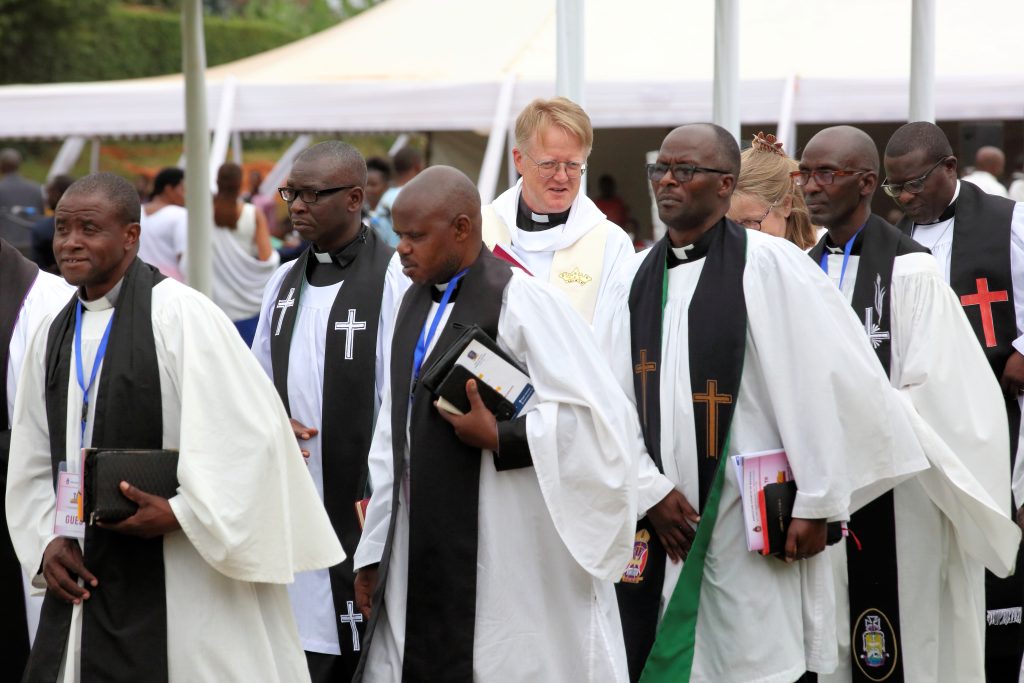
Alex continued, “Life in Rugote Parish continues to improve under the Archdeacon’s leadership who doubles as the Diocesan vet. We toured the school’s new woodwork shop which is part of a self-employment scheme to train villagers in the building trades. Last year they conducted training in house building skills for 20 young men and this year they are training carpenters, 4 women and 16 men, focusing on doors, windows and roof trusses. The church’s links with the Winchester Diocese are crucial, making the visits of Bishops Manasseh, Jean Pierre, Assiel, in October this year and hopefully Vincent next year so important. We continue to hold the diocese, Bishop Vincent and his family in our prayers.”
The visit to Rwanda culminated in a huge event to mark the 100th anniversary of the Anglican Church in the country. The representatives from the diocese were joined by 5,000 Christians from across the world in Gahini, which is the birthplace of the Anglican Church in Rwanda. The three-day convention included reflections on the Church’s history and work, testimonies from missionary workers within Rwanda, and joyful music and worship supported by many choirs from around the country. The convention’s theme was ‘The Lord has done great things for us, and we are glad’, from Psalm 126 v3.
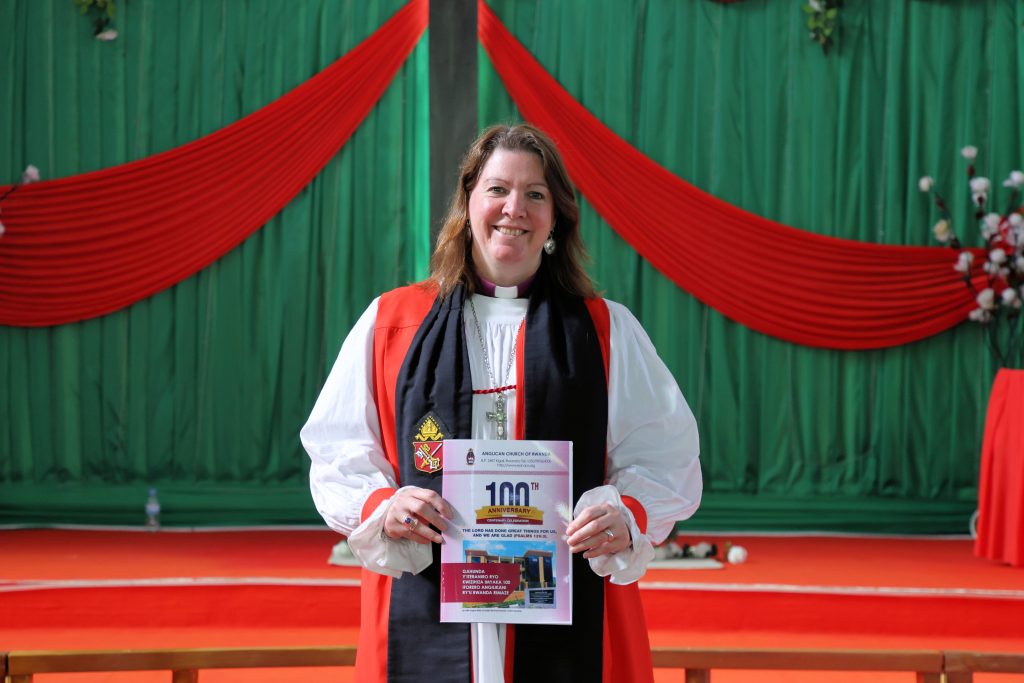
Bishop Rhiannon said, “Choir after choir helped us worship, the archbishop preached, communion was celebrated and 4 hours later we had well and truly marked an important milestone in this extraordinary corner of God’s earth and the Anglican Communion. Supporters and well-wishers came from the UK, Australia, New Zealand, the US, Burundi, Uganda, Kenya and lots of other places too. How privileged episcopal ministry is, especially in a province like this and Rwandans know how to be joyful even in the midst of difficult times.”
The Anglican Church in Rwanda was born in 1925 through the establishment of a mission station at Gahini Hill, around 50 miles from the Rwandan capital Kigali, by Captain Godfrey Holmes of the British Army. This built on missionary work in the early part of the 20th century by the Church Missionary Society. Gahini was the centre of what became known as the ‘East African Revival’ in the 1930’s, a legacy still felt strongly today.
The first Anglican Diocese was established in Rwanda in 1965 followed by the consecration of the first Rwandan Anglican bishop in Kigali in 1966. The Anglican Church of Rwanda now consists of 13 dioceses, created to provide pastoral and missionary activity across the country.
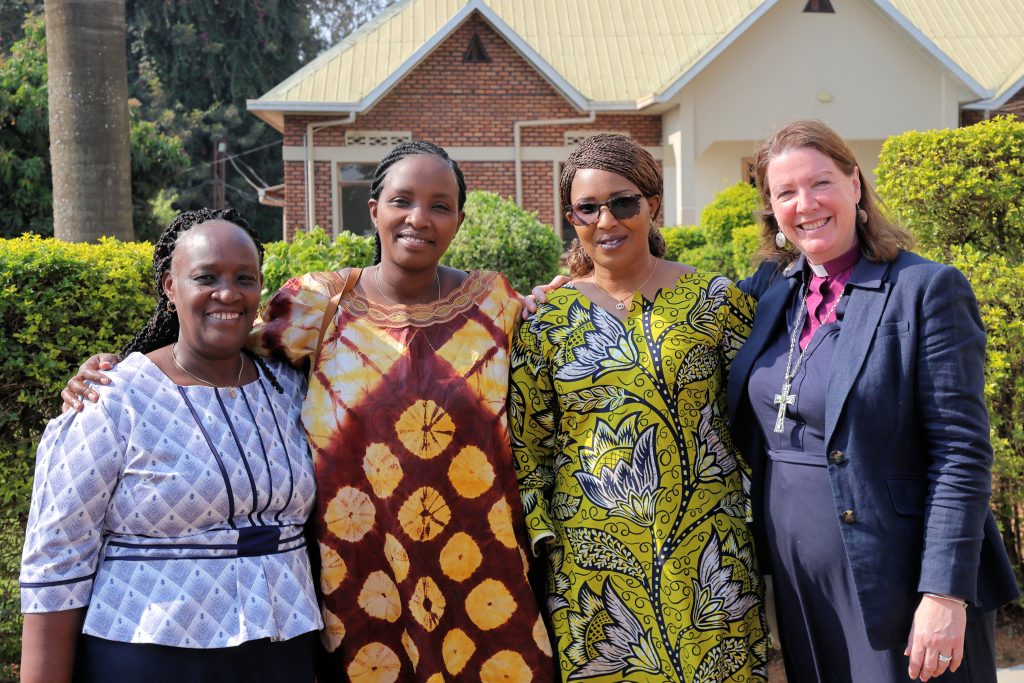
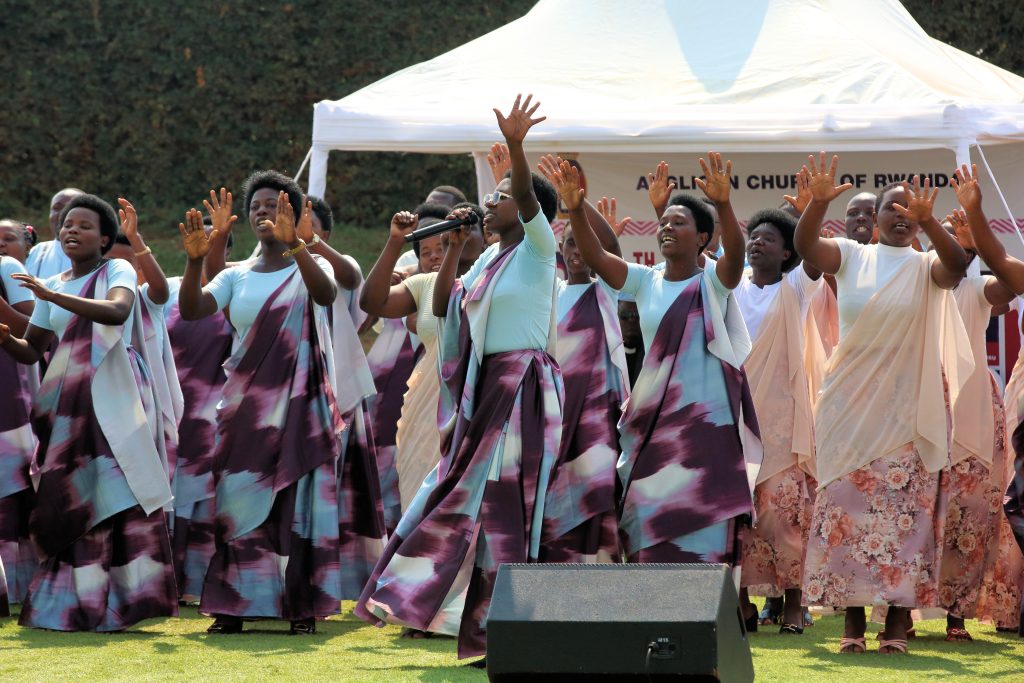
The climax of the celebrations was a service led by the Archbishop of Rwanda, Dr Laurent Mbanda, and attended by Rwandan Bishops, pastors from across the country and thousands of church members. The service began with a parade of hundreds of people, led by a youth band and including the Boys and Girls Brigade, Mothers Union, Fathers Union and Youth Union, the pastors, bishops and invited guests.
The service included further reflections on the past, present and future of the Anglican Church in Rwanda, and the cutting of a celebration cake.
Alex Green said, “The centenary provided not just a cause for celebration but a perspective on the importance of the East African Revival that began in Gahini. Several thousand congregants including government officials celebrated the first 100 years of Anglican presence, highlighting the church’s evolution and the influence, particularly in western provinces, of churches like that of Winchester Diocese.”
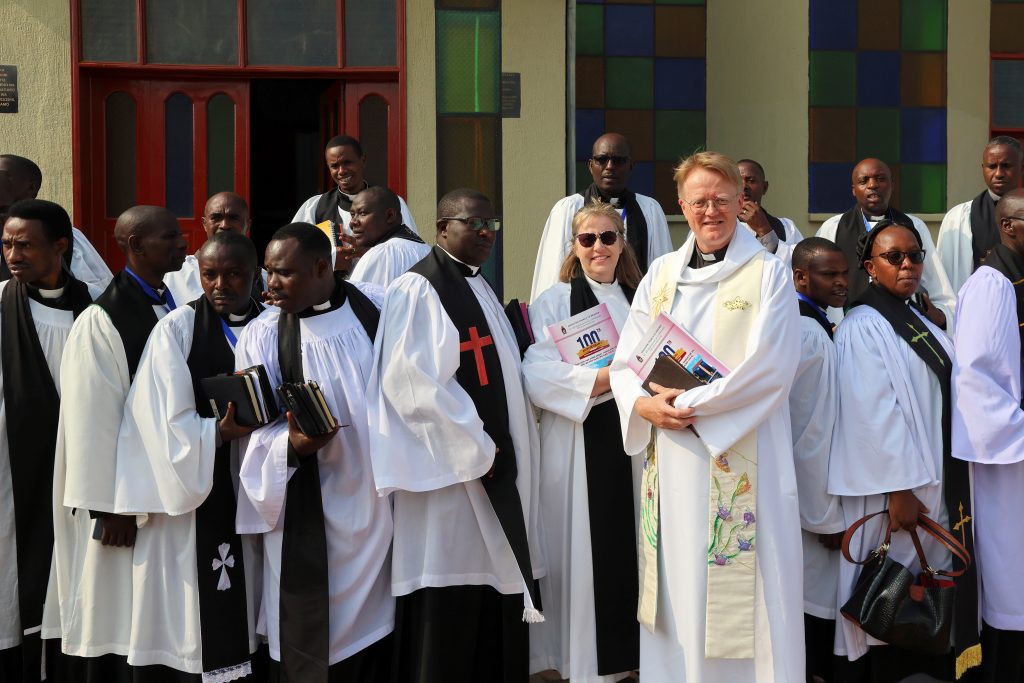
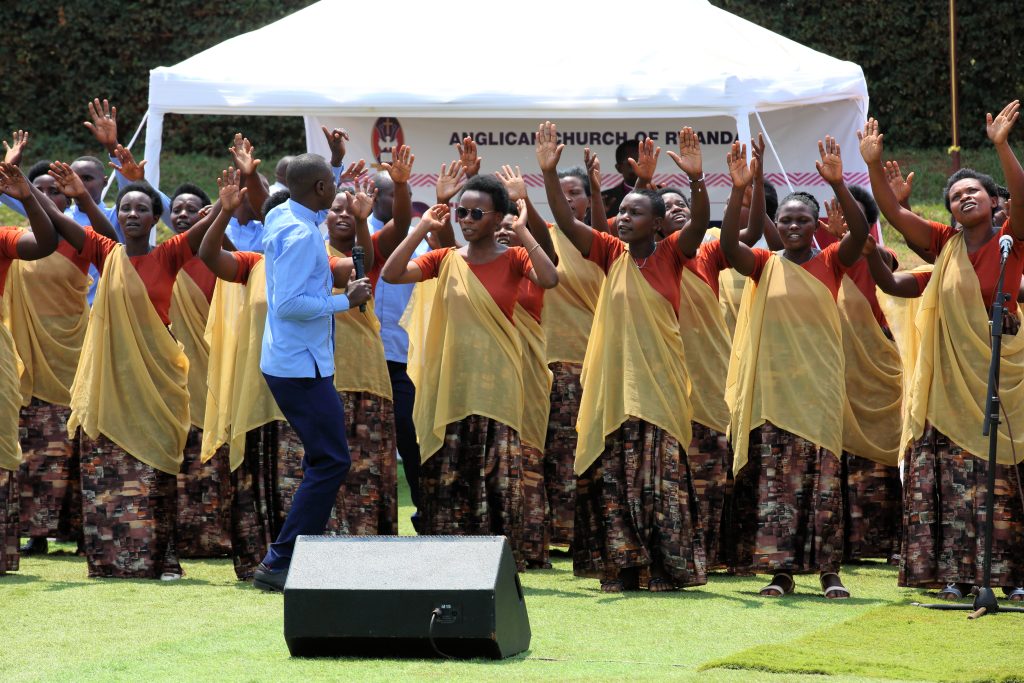
Bishop Rhiannon said, “The heartfelt call to confession, repentance and revival was deeply moving. The shared joy of gathering to praise God for his faithfulness was contagious. The Rwandan Church is planting not only congregations but dioceses, even whilst dealing with difficulties within its context. There is much that we can learn from our Rwandan brothers and sisters, and we pray for God’s blessing on them for the next hundred years and beyond.”
Revd Simon Newham commented on what he had learnt from the visit. “Firstly, what a privilege it is to be involved in partnership projects and how in giving and supporting we actually receive more than we gave. Secondly, how fragile communities are, and how we take community adhesion and our common life together at our peril. We visited a couple of genocide memorials during our time in Rwanda, and they are truly horrific. Rwanda is a lesson in being aware of that which seeks to divide us, and of those who give easy, popular answers, to complicated and difficult situations.”

After her visit, Bishop Rhiannon said, “Basic values, like respect for human life, can vanish faster than we think. Living far away is no excuse for silence. The Church in the UK (as elsewhere) must pray, speak out and act to make this world better by standing against injustice wherever it appears. Yet even in the midst of horror, there are shining lights – people who choose forgiveness, and bring hope and love into the darkness. We pray to God to equip us now with courage, wisdom and compassion so that we may be with the first to act, not the last, and show us what this means for us today, this week, this year, for Jesus’ sake.”
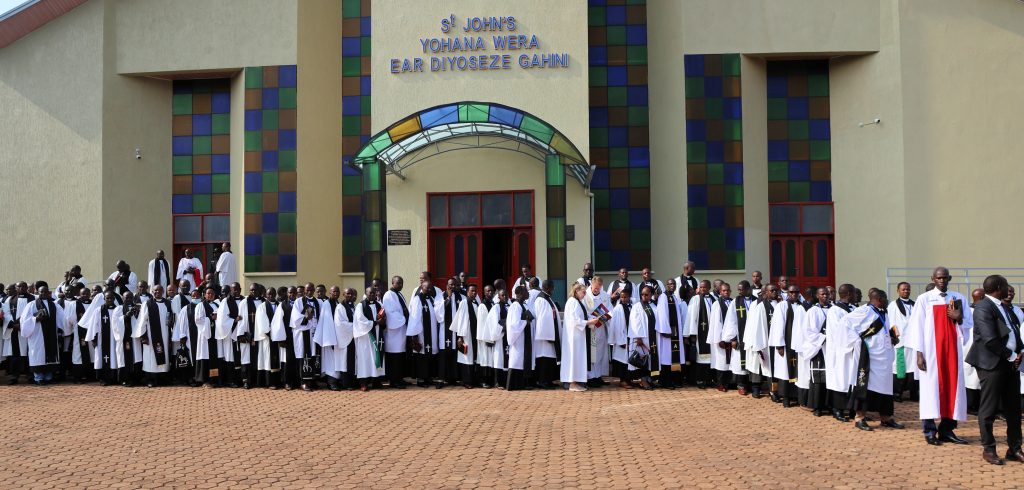
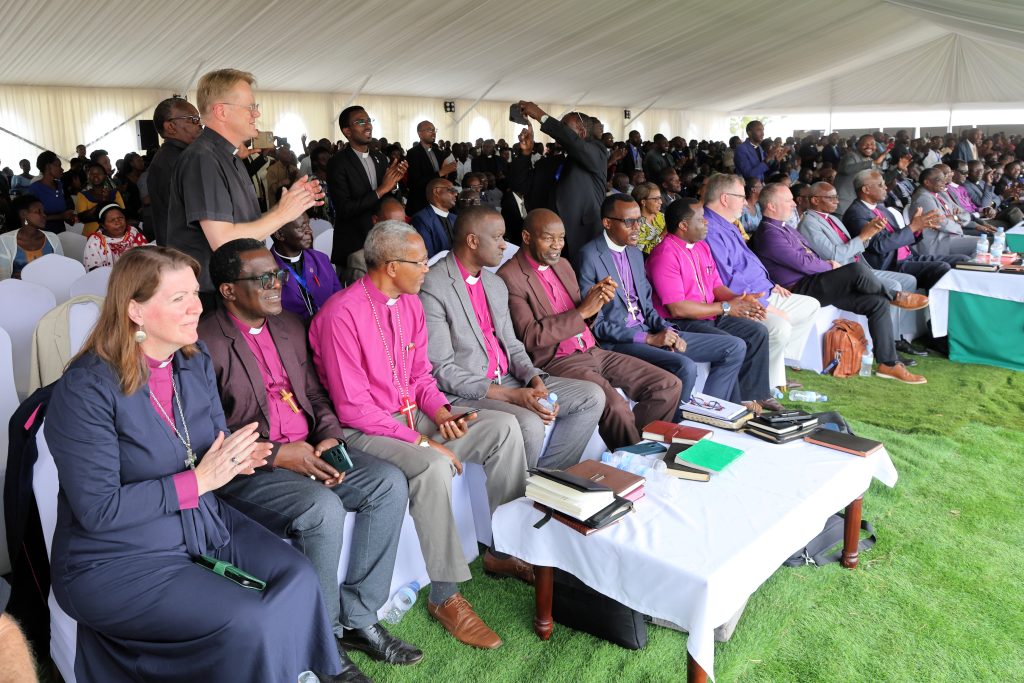
Revd Lee Thompson commented, “In a developing country, the Rwandan Church has provided and continues to provide a significant contribution to education and health services, with a strong emphasis on economic and training opportunities to enable families and communities to flourish. This land and these people gave me so much to reflect upon during my visit. Thirty-one years since the genocide and following a healing process of justice and reconciliation, Rwanda has emerged as a rapidly developing nation with a dynamic population with a passion for the Gospel as its beating heart. At the cathedral in Gahini, the bitter sting of tears has been turned into an outpouring of praise and thanksgiving: ‘The Lord has done great things for us, and we are glad!’”

